Exploring Italy: A Journey Through its Rich Culture, History, and Endless Beauty
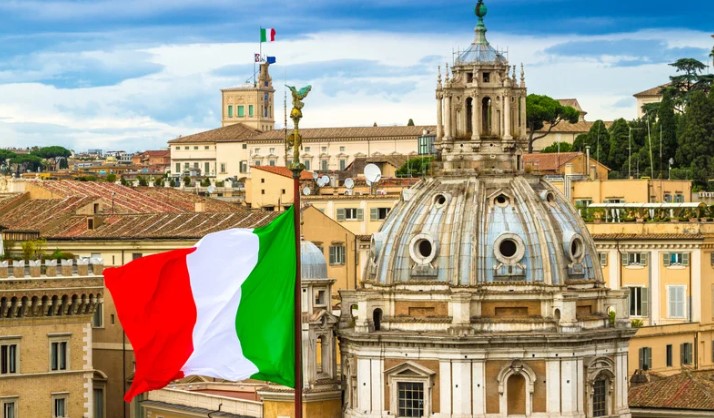
The Global Allure of Italy
Italy is a country known for its rich history, delicious food, beautiful language, and natural beauty, to name a few. It is a popular destination for travelers worldwide, and its culture and legacy have left a lasting impact on Western civilization. Italy has been at the forefront of many significant historical events and movements from the ancient Roman Empire to the Renaissance era.
Historical Significance
The Roman Empire: Origins, Growth, and Impact on Western Civilization
The history of Italy is deeply intertwined with the history of the Roman Empire, which originated in the Italian peninsula in the 8th century BCE. The Roman Empire was one of the most powerful and influential civilizations in the world, and its legacy can still be seen today in many aspects of Western culture, including our legal systems, architecture, and language.
For example, many words in the English language have Latin roots, and many famous landmarks, such as the Colosseum in Rome, were built during this time.
Renaissance Era: Revival of Arts, Sciences, and the Birth of Modern Thought
Following the fall of the Roman Empire, Italy became a collection of city-states, and it was during this time that the Renaissance era began in the 13th to the 17th century. This was a period of great cultural and intellectual growth, and Italy was at its heart. Cities like Florence, Venice, and Rome became art, science, and philosophy centers.
During this time, famous artists like Leonardo Da Vinci created some of their most iconic works, and scientists like Galileo Galilei made groundbreaking discoveries. The Renaissance era marked the birth of modern thought. It profoundly impacted the world, shaping history for centuries to come.
These historical periods are just a small part of what makes Italy such an incredible country. From its origins as the center of the Roman Empire to its role in the Renaissance, Italy has a rich history that continues to influence the world today.
This legacy, combined with its delicious food, beautiful language, and natural beauty, makes Italy a popular destination for travelers and a country known and loved worldwide.
Cultural Richness
Arts and Architecture
Italy is a treasure trove of art and architecture, with countless masterpieces created by some of the world’s most famous artists and architects. For example, the Uffizi Gallery in Florence houses an impressive collection of Italian Renaissance artwork, including pieces by Leonardo da Vinci, Michelangelo, and Caravaggio. These artists and many others contributed to the rich artistic legacy Italy is known for today.
Another iconic landmark is the Colosseum in Rome, an ancient amphitheater that could hold up to 80,000 spectators. It is a testament to the architectural prowess of the ancient Romans. It is one of the most visited tourist attractions in the world. Florence’s Cathedral, with its stunning dome designed by Filippo Brunelleschi, and the picturesque canals of Venice are other examples of Italy’s architectural marvels.
Literature and Philosophy
Italy is also the birthplace of many famous literary works and philosophical ideas. Dante Alighieri’s “Divine Comedy” is one of the most important works of world literature and is considered the greatest literary work in the Italian language. It is an epic poem that describes Dante’s journey through Hell, Purgatory, and Paradise and is still widely read and studied today.
Francesco Petrarch, another famous Italian poet, is known for his collection of sonnets dedicated to his muse, Laura. His writings significantly influenced the development of the modern Italian language and are considered some of the most beautiful poems ever written.
Niccolò Machiavelli, a political philosopher and author, wrote “The Prince,” a treatise on political power and leadership that scholars still study and debate. His writings and ideas profoundly impacted political thought and are an important part of Italy’s cultural legacy.
These are just a few examples of the many contributions that Italy has made to the world of arts, literature, and philosophy. From Leonardo da Vinci’s masterpieces to Dante and Machiavelli’s writings, Italy’s cultural richness is one of the many reasons it is known and admired worldwide.
Renowned Italian Cuisine
Regional Dishes
One of the things that Italy is most famous for is its delicious food. Italian cuisine is loved worldwide, and each region of Italy has its own special dishes and culinary traditions. For example, risotto, a creamy rice dish cooked with broth and flavored with various ingredients, is a specialty of Northern Italy. Pizza, one of the most popular foods in the world, originated in Naples, and many different types of pasta dishes are enjoyed across the Italian regions.
World-famous Wines
Italy is also the world’s largest wine producer, and Italian wines are renowned for their quality and variety. Prosecco, a sparkling white wine from the Veneto region, is enjoyed as an aperitif or with light meals. Chianti, a red wine from Tuscany, is perfect with pasta and meat dishes. Barolo, known as the “king of wines,” is a rich and robust red wine from the Piedmont region. Limoncello, a lemon liqueur from Southern Italy, is a popular after-dinner drink.
Culinary Traditions
The importance of family meals, regional festivals, and historical influences all play a significant role in modern-day Italian cuisine. Family meals are a cherished tradition in Italy, and many Italian recipes have been passed down from generation to generation. Regional festivals often feature traditional dishes specific to that area, and historical influences, such as the Roman Empire and the various civilizations that occupied the Italian peninsula over the centuries, have also shaped the Italian cuisine that we know and love today.
In conclusion, the renowned Italian cuisine, with its regional dishes, world-famous wines, and cherished culinary traditions, is another important aspect of what Italy is known for. It is a reflection of the country’s rich history, culture, and love for life and is enjoyed by people all over the world.
The Legacy of Milan: Italy’s Fashion Capital and Its Global Influence
Italy is known as the world’s fashion capital, and Milan is at the heart of it all. Milan hosts one of the most important fashion weeks in the world, along with New York, London, and Paris. During Milan Fashion Week, renowned designers and fashion houses showcase their latest collections, setting trends that will be followed worldwide.
Italian fashion is synonymous with style, elegance, and innovation. Milan is home to many of the world’s most famous fashion houses, including Versace, Dolce & Gabbana, Prada, and Gucci.
Renowned Designers
Italian designers have made a significant impact on the world of fashion. With his bold and glamorous designs, Gianni Versace became one of the most influential designers of the 20th century. Dolce & Gabbana, founded by Domenico Dolce and Stefano Gabbana, is known for its luxurious and extravagant designs.
Prada, founded by Mario Prada, is synonymous with sophistication and minimalist style. Gucci, founded by Guccio Gucci, is famous for its iconic monogrammed accessories and innovative designs.
Italian Cars
Italy is also famous for its luxury sports cars and iconic automotive designs. Ferrari, founded by Enzo Ferrari, is known for its high-performance sports cars and success in Formula One racing.
Lamborghini, founded by Ferruccio Lamborghini, is famous for its sleek and powerful sports cars. Fiat, founded by Giovanni Agnelli, has a long and iconic history, producing affordable cars for the masses and owning several well-known automobile brands.
In conclusion, Italy’s influence on fashion and design is immense. From the runways of Milan to the sleek designs of Ferrari and Lamborghini, Italy continues to be a global leader in style, innovation, and craftsmanship.
This legacy of fashion and design is another important aspect of what Italy is known for and contributes to its global appeal and influence.
Scenic Beauty and Tourist Destinations
Rolling Countryside: Tuscany’s Vineyards and Umbria’s Medieval Towns
Italy is famous for its art, culture, cuisine, and natural beauty. The rolling countryside of Tuscany, with its vineyards, olive groves, and historic towns, is a picturesque and popular destination for tourists. Umbria, often called the “green heart of Italy,” is home to medieval towns like Assisi and Orvieto, nestled amid rolling hills and lush valleys.
Coastal Wonders: The Amalfi Coast, Cinque Terre, and Sardinia’s Beaches
Italy’s coastline is equally stunning, with many beautiful beaches and coastal towns to explore. The Amalfi Coast, with its colorful cliffside villages and crystal-clear waters, is one of the most famous coastal regions in the world. Cinque Terre, a collection of five villages on the Ligurian coast, is known for its dramatic cliffs, colorful buildings, and delicious seafood. Sardinia, an island in the Mediterranean Sea, boasts some of the most beautiful beaches in the world, with white sands and turquoise waters.
Cities of Interest: Rome’s Historical Sites, Venice’s Romantic Charm, Florence’s Artistic Treasure, and Sicily’s Unique Blend of Cultures
Italy’s cities are also a major draw for tourists. Rome, the capital city, is home to many famous historical sites, including the Colosseum, the Roman Forum, and the Pantheon. With its canals, gondolas, and romantic charm, Venice is a must-visit city for couples. Florence, the birthplace of the Renaissance, is an artistic treasure trove with masterpieces by Michelangelo, Leonardo da Vinci, and Botticelli. Sicily, the largest island in the Mediterranean, offers a unique blend of cultures, with influences from Greece, Arab, and Norman civilizations.
In conclusion, Italy’s scenic beauty and tourist destinations are another important aspect of what Italy is known for. From the rolling countryside of Tuscany and Umbria to the coastal wonders of the Amalfi Coast, Cinque Terre, and Sardinia to the historical and cultural riches of Rome, Venice, Florence, and Sicily, Italy offers a wealth of experiences for every traveler.
Contributions to Science and Innovation
Pioneers like Galileo, Leonardo da Vinci, and Marconi
Italy has a long history of contributions to science and innovation, with many famous pioneers hailing from this country. Galileo Galilei, often called the “father of modern science,” made groundbreaking discoveries in astronomy, physics, and mathematics.
Leonardo da Vinci, a polymath and one of the most famous figures of the Renaissance, made significant contributions to various fields, including anatomy, engineering, and hydraulics. Guglielmo Marconi, an inventor and electrical engineer, is the father of long-distance radio transmission. He was awarded the Nobel Prize in Physics for his work.
Modern Advancements Stemming from Italian Research and Innovation
In recent years, Italy has continued to be a hub for research and innovation. Italian scientists and researchers have significantly advanced in various fields, including medicine, technology, and renewable energy. I
taly is home to many prestigious research institutions and universities, and the government invests heavily in research and development. Italian companies are also at the forefront of innovation, developing cutting-edge products and technologies that are used all over the world.
In conclusion, Italy’s contributions to science and innovation are another important aspect of what Italy is known for. Italy has a rich scientific discovery and innovation history, from pioneers like Galileo, Leonardo da Vinci, and Marconi to modern advancements in medicine, technology, and renewable energy. This legacy continues to thrive today. Italian researchers and companies are crucial in addressing some of the world’s most pressing challenges.
Musical Contributions
From Opera to Contemporary: Verdi, Puccini, Bocelli, and the Global Influence of Italian Music
Italy is home to some of the world’s most famous composers and musicians, and its musical contributions span from classical opera to contemporary music. Giuseppe Verdi and Giacomo Puccini are two of the most famous opera composers of the 19th century, and their works are still performed in opera houses worldwide.
A contemporary classical singer, Andrea Bocelli has gained international fame for his powerful voice and emotional performances. Italian music has had a global influence, and many Italian songs and compositions have become famous worldwide.
Festivals and Traditions: La Scala in Milan and the Sanremo Music Festival
Italy is also home to many famous music festivals and traditions. La Scala in Milan is one of the most famous opera houses in the world, and it hosts performances by top artists from all over the globe.
The Sanremo Music Festival is one of Italy’s most popular festivals, held annually since 1951. It has launched the careers of many famous Italian singers and songwriters. It is watched by millions of viewers in Italy and abroad.
In conclusion, Italy’s musical contributions are another important aspect of what Italy is known for. From famous composers like Verdi and Puccini to contemporary artists like Andrea Bocelli, Italian music has profoundly influenced the global music scene. Famous musical traditions and festivals like La Scala and the Sanremo Music Festival continue to celebrate and promote Italian music.
The Enduring Legacy and Global Love for Italy
Italy is a country that has captured the hearts of people all over the world. Italy has an enduring legacy that continues to inspire and fascinate, from its rich history and cultural heritage to its delicious food, stunning landscapes, and contributions to art, science, and music. Italy’s diverse tapestry of experiences makes it a must-visit and study for anyone interested in culture, history, and beauty.
Recommendations
Essential Places to Visit for the Ultimate Italian Experience
For the ultimate Italian experience, there are several essential places to visit. Rome, with its ancient history and iconic landmarks; Florence, the birthplace of the Renaissance; Venice, with its romantic canals and architecture; and the Amalfi Coast, with its stunning coastal scenery, are all must-visit destinations. Additionally, regions like Tuscany and Sicily offer a unique blend of natural beauty, historical sites, and culinary delights.
Tips for Immersing Oneself in Italian Culture
ing Learn some basic Italian phrases is recommended to immerse oneself in Italian culture, as this will enhance your experience and help you connect with locals. Participating in traditional Italian activities, such as cooking classes, wine tastings, and attending local festivals, can help you better understand Italian culture.
Finally, taking the time to explore smaller towns and villages, in addition to the major cities, will give you a more authentic and well-rounded experience of Italy.
In summary, Italy is a country with a rich and diverse heritage that continues to captivate people all over the world. Italy has something to offer everyone, from its historical significance to its cultural richness, renowned cuisine, fashion and design, scenic beauty, and musical contributions.
To truly immerse yourself in the Italian experience, learning some basic Italian, participating in traditional activities, and exploring famous cities and lesser-known regions is recommended. This will ensure that you have a memorable and fulfilling experience of what Italy is known for.

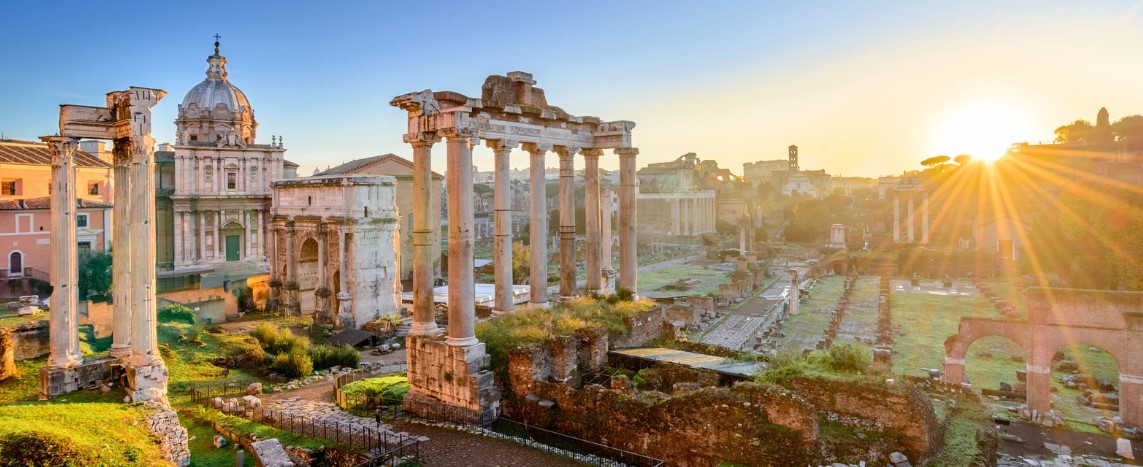
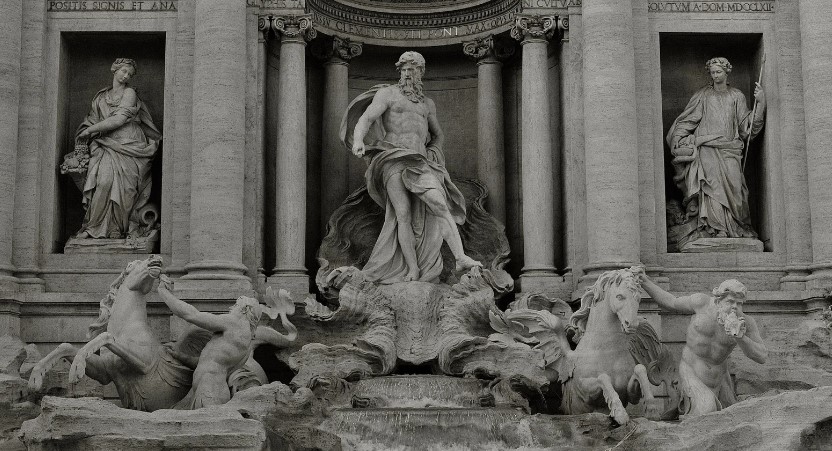
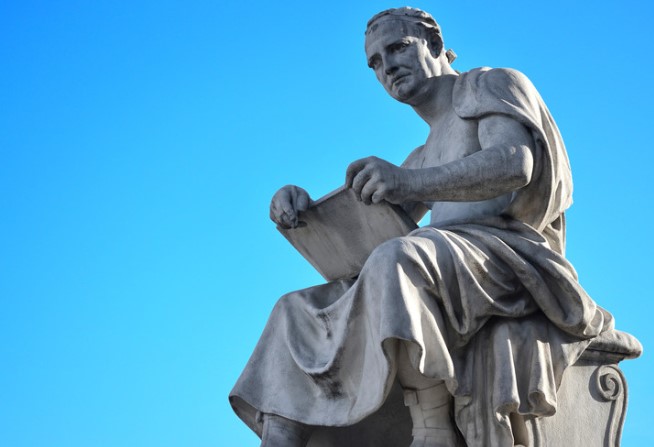



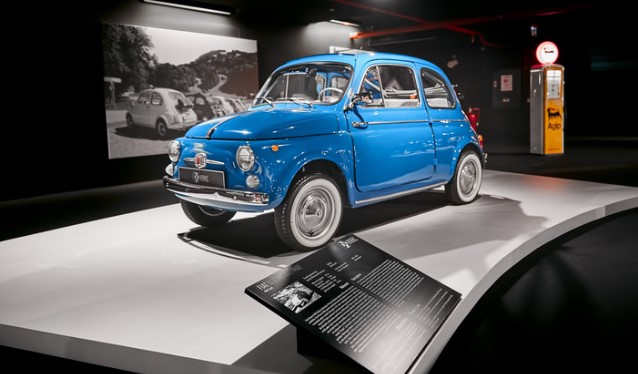

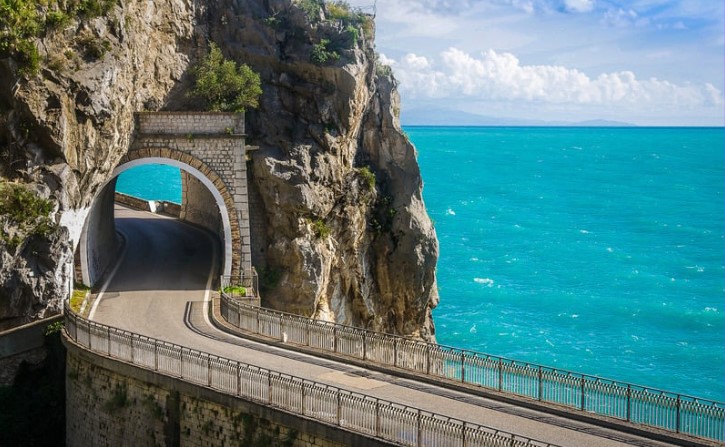
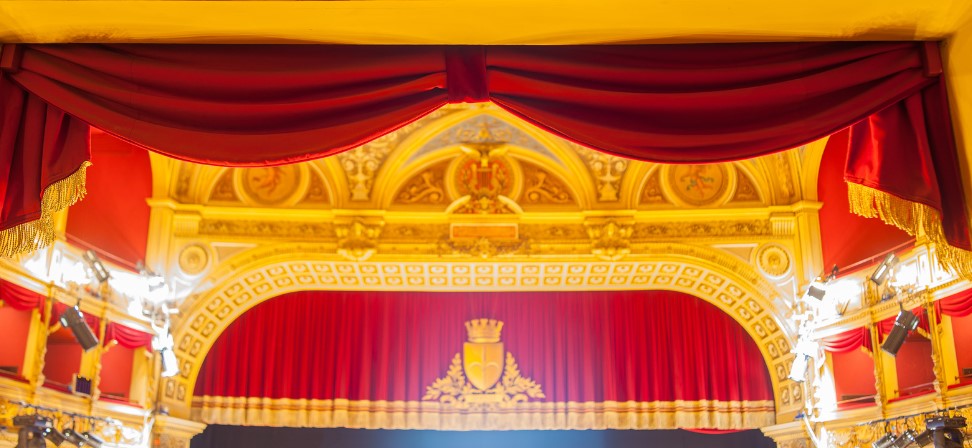
Pingback: Things to Do in South Africa: Unveiling Must-Visit Wonders